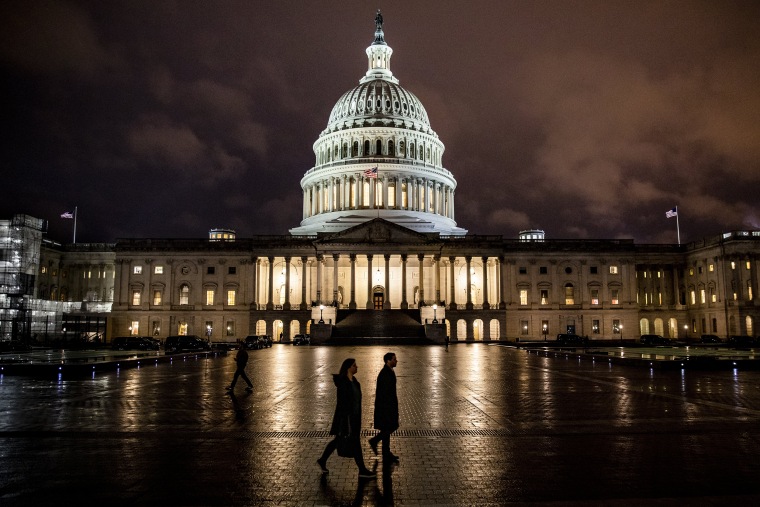This morning's jobs report -- the final one voters will see before Election Day -- offered discouraging news about the strength of the economic recovery. But it also served as a wake-up call to policymakers that the need for a new economic aid package hasn't gone away.
In mid-May, House Democrats saw the CARES Act's expiration on the horizon and took steps to stay ahead of the problem. The lower chamber approved an ambitious aid package, carrying a price tag of over $3 trillion, which would extend benefits to struggling families, businesses, and communities through the end of the year.
As we've discussed, Republicans soon after responded with very little. GOP officials said they didn't like the Democratic plan, but they couldn't even agree among themselves on an alternative.
Last night, House Dems tried anew to keep the process moving.
The House of Representatives passed a $2.2 trillion Covid-19 relief bill Thursday night as negotiations between the administration and Democrats have failed to yield a bipartisan deal and the time to pass new relief measures ahead of November's election ticks away. The measure passed 214-207. No Republicans supported it and 18 Democrats voted against it. Nearly all of the Democrats who voted against the bill are locked in close re-election races.
In theory, with House Democratic leaders scaling back their plan, shaving roughly $1 trillion off the price of their preferred blueprint, we might expect to see Republicans responding in kind, increasing the amount they're willing to invest to bolster the economy.
In practice, it's a different story. On the one hand, there's Donald Trump, who's played no meaningful role in the negotiations, but who's expressed some support for Democratic investment goals. "Yeah, I like the larger amount," the president said two weeks ago. "I've said that, you know. Some of the Republicans disagree, but I think I can convince them to go along with it because I like the larger number."
GOP lawmakers, meanwhile, have left little doubt that they do not like the larger number. Complicating matters, Larry Kudlow, the director of the White House National Economic Council, recently suggested a robust recovery is already underway, it's "self-sustaining," and he didn't see an additional major relief package as entirely necessary.
For his part, Treasury Secretary Steven Mnuchin is at least at the negotiating table, and this week upped his offer, endorsing a $1.6 trillion package, up from his earlier $1.5 trillion proposal. His new blueprint also included aid to states and municipal governments, which Trump has long opposed.
That said, Mnuchin is still not close to House Speaker Nancy Pelosi's (D-Calif.) target, and there's no reason to assume Republicans will necessarily embrace a deal negotiated by the Treasury secretary.
As for the electoral circumstances, MSNBC's Chris Hayes noted yesterday how "truly amazing" it is to see Democrats trying desperately to boost the economy ahead of Trump's re-election. "If the shoe were on the other foot," Chris added, the GOP would be "blockading everything happily."
It's an important detail. Democratic leaders know that if they invest heavily in the economy now, and it boosts the recovery, it might very well help the president's election-season pitch. They're doing it anyway, largely because they're members of a governing party, committed to trying to help families struggling during the crisis.
We can contrast this with how congressional Republicans acted during the last recession -- see chapter 2 of my book -- when GOP leaders rejected every measure designed to boost the economy, even opposing ideas they used to support.
As for the road ahead, the fact that Pelosi and Mnuchin are still in discussions is evidence of a process that is not yet dead, but the odds of a breakthrough aren't great. This morning's jobs report should add a sense of urgency to the talks, but the gap between the parties remains considerable.

